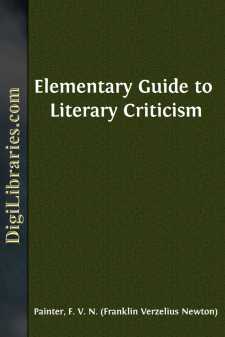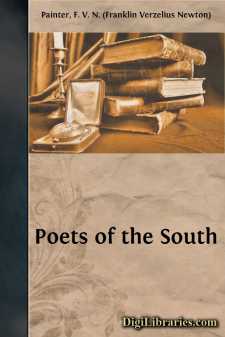Categories
- Antiques & Collectibles 13
- Architecture 36
- Art 48
- Bibles 22
- Biography & Autobiography 813
- Body, Mind & Spirit 142
- Business & Economics 28
- Children's Books 15
- Children's Fiction 12
- Computers 4
- Cooking 94
- Crafts & Hobbies 4
- Drama 346
- Education 46
- Family & Relationships 57
- Fiction 11828
- Games 19
- Gardening 17
- Health & Fitness 34
- History 1377
- House & Home 1
- Humor 147
- Juvenile Fiction 1873
- Juvenile Nonfiction 202
- Language Arts & Disciplines 88
- Law 16
- Literary Collections 686
- Literary Criticism 179
- Mathematics 13
- Medical 41
- Music 40
- Nature 179
- Non-Classifiable 1768
- Performing Arts 7
- Periodicals 1453
- Philosophy 64
- Photography 2
- Poetry 896
- Political Science 203
- Psychology 42
- Reference 154
- Religion 513
- Science 126
- Self-Help 84
- Social Science 81
- Sports & Recreation 34
- Study Aids 3
- Technology & Engineering 59
- Transportation 23
- Travel 463
- True Crime 29
F. V. N. (Franklin Verzelius Newton) Painter
Franklin Verzelius Newton Painter was an American scholar, literary critic, and writer born in 1852. He was a professor of modern languages at Roanoke College in Virginia and contributed significantly to educational literature. Painter is best known for his works such as "A History of Education" and "Luther on Education," where he explored the development of education through historical figures and movements. His writings often focused on the influence of culture and religion on education, and he played an essential role in the study of educational history.
Author's Books:
Sort by:
CHAPTER I NATURE AND OFFICE OF CRITICISM 1. Purpose of Literary Study. The study or reading of literature ordinarily has a threefold purpose,—knowledge, pleasure, and culture. This purpose shows us both the character of the literature which should be read and the manner in which it should be read. As a rule we should read only books of recognized excellence, and read them with sympathetic...
more...
CHAPTER I MINOR POETS OF THE SOUTH The first poetic writer of this country had his home at Jamestown. He was GEORGE SANDYS who came to Virginia in 1621, and succeeded his brother as treasurer of the newly established colony. Amid the hardships of pioneer colonial life, in which he proved himself a leading spirit, he had the literary zeal to complete his translation of Ovid's Metamorphoses, which...
more...



